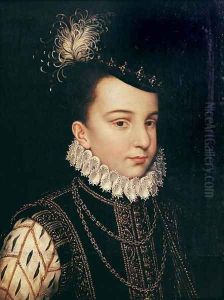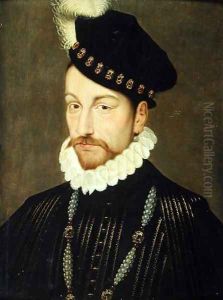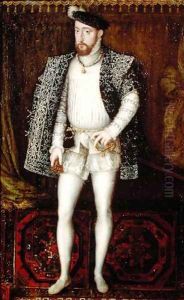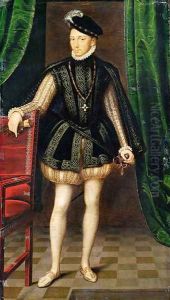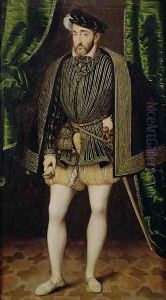(workshop of) Clouet, Francois Paintings
François Clouet was a French Renaissance painter known for his exquisite portraits of the French elite. He was born around 1510 in Tours, France, and was the son of the celebrated portraitist Jean Clouet, who was a court painter to King Francis I. François inherited his father's position and artistic legacy, becoming one of the most prominent and influential artists at the French court during the mid-16th century.
François Clouet was given the title of 'painter in ordinary' to the king after his father's death in 1541. His role as a court painter involved creating portraits of royalty and the nobility, as well as contributing to the decoration of royal residences. Clouet gained fame for his detailed and realistic portrayal of his subjects, often capturing not just their physical likeness but also a sense of their personality and status. His works were known for their delicate handling of detail and for the sophisticated elegance they conveyed.
Although Clouet is best known for his portraits, he was also involved in designing and producing decorative works for various court festivities and events, which included intricate designs for tournaments, pageants, and funerals. He worked during the reigns of successive French kings, from Francis I to Henry II, and into the reign of Francis II. Clouet's clientele extended beyond the royal family to include high-ranking nobles and influential courtiers.
Among his most famous works is the portrait of Elizabeth of Austria, Queen of France, and the 'A Lady in Her Bath,' which is often attributed to him or his workshop. Clouet did not sign his paintings, and because of this, along with the collaborative nature of his workshop, attributing works directly to him can sometimes be challenging. However, his style was so distinctive that it has been possible for art historians to identify his hand in many outstanding portraits of the period.
François Clouet remained active as a court painter until his death in 1572. His legacy continued through his influence on other artists and through the works that still resonate with the sophistication and elegance of the French court during the Renaissance. Clouet's contribution to portraiture set a standard for realism and psychological insight that would influence French art for generations to come.
